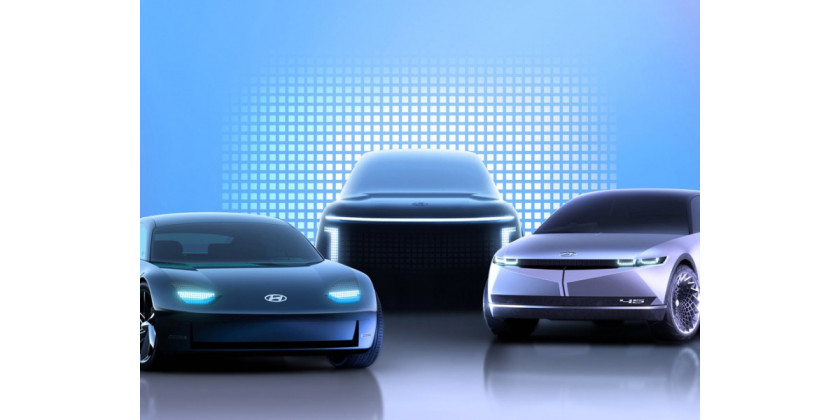

Exports of Korean electric vehicles are growing at a rapid pace.
Electric cars, whose prospects until recently many doubted, are gaining growing popularity all over the world, including in Korea. South Korean manufacturers seem to be ready for this turn of events. True, in the domestic market they have a serious competitor - the American company Tesla, whose cars are very fond of the Koreans. Hyundai Motor even had to resort to administrative resources to try to keep the Americans out of Korea by depriving them of state and municipal subsidies. But on the other hand, Korean manufacturers clearly have no problems in foreign markets. This is evidenced by data from the Korean Foreign Trade Association (KITA), published in local media.
Korea's all-electric vehicle exports in 2020 grew by a whopping 65.9 percent year-on-year to reach $ 3.9 billion, KITA said. If we add hybrid cars equipped with both an electric motor and an internal combustion engine, the total volume of Korean exports is estimated at $ 7.14 billion, and the annual growth is 19.3 percent.
As we can see, even the pandemic could not stand in the way of progress and the transition to environmentally friendly means of personal transport, although it slowed down the export of South Korean cars as a whole: it decreased by 13.1 percent in 2020 to $ 37.42 billion.
The share of electric and hybrid vehicles in Korean auto export has grown steadily in recent years. If in 2017 it was only 8.6%, then in 2018 it grew to 10.5%, in 2019 - up to 13.9%, and last year - up to 19.1%.
In KITA, the growth of foreign demand for electric vehicles is associated with the tightening environmental requirements for vehicles in different countries of the world. In addition, in Europe and China, for example, governments generously subsidize the purchase of electric vehicles and are actively helping to build infrastructure to recharge them.
An ultra-fast charging station for electric vehicles that opened on January 21 in the Seoul Municipal District of Gandong-gu. The power of Hyundai chargers is 350 kilowatts and allows recharging the battery from 10 to 80 percent in 18 minutes.
It is not surprising, therefore, that 68 percent of Korean exports of electric vehicles go to European countries, while if you take South Korea's auto exports as a whole, then Europe accounts for only 20 percent of sales.
In 2020, exports of all-electric Korean cars to the UK increased by 624.3%, to France by 112.2%, and to Italy by 260.2%. South Korea is now in 4th place in the world for the export of this kind of cars, behind Germany, the USA and Belgium. If we take into account all types of electric cars, then Korea also skips ahead to Japan, finding itself in fifth position: the Japanese sell many hybrid models.
Given the above, KITA believes that in the fast-growing European electric vehicle market, Korean companies should closely monitor changes in environmental requirements and preferential treatment. This will allow us to offer customers competitive models in a timely manner.





